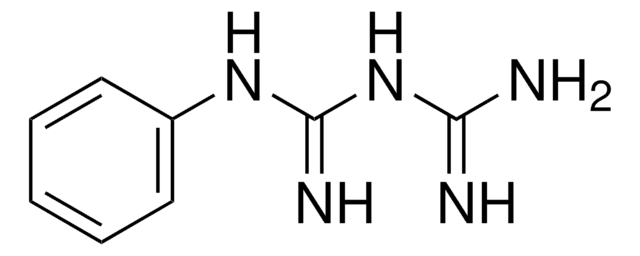T5576
TMPH hydrochloride
solid, (Product is pure based on CHN, NMR and MS results)
Synonym(s):
2,2,6,6-Tetramethylpiperidin-4-yl heptanoate hydrochloride
About This Item
Recommended Products
form
solid
storage condition
under inert gas
color
white
solubility
H2O: 22 mg/mL at ~60 °C
storage temp.
2-8°C
SMILES string
Cl.CCCCCCC(=O)OC1CC(C)(C)NC(C)(C)C1
InChI
1S/C16H31NO2.ClH/c1-6-7-8-9-10-14(18)19-13-11-15(2,3)17-16(4,5)12-13;/h13,17H,6-12H2,1-5H3;1H
InChI key
XIDDVJIJIFWGIX-UHFFFAOYSA-N
Application
Biochem/physiol Actions
Features and Benefits
Preparation Note
Signal Word
Warning
Hazard Statements
Precautionary Statements
Hazard Classifications
Eye Irrit. 2 - Skin Irrit. 2 - Skin Sens. 1 - STOT SE 3
Target Organs
Respiratory system
Storage Class Code
11 - Combustible Solids
WGK
WGK 3
Flash Point(F)
Not applicable
Flash Point(C)
Not applicable
Personal Protective Equipment
Certificates of Analysis (COA)
Search for Certificates of Analysis (COA) by entering the products Lot/Batch Number. Lot and Batch Numbers can be found on a product’s label following the words ‘Lot’ or ‘Batch’.
Already Own This Product?
Find documentation for the products that you have recently purchased in the Document Library.
Articles
Sigma-Aldrich offers many products related to nicotinic acetylcholine receptors for your research needs.
Our team of scientists has experience in all areas of research including Life Science, Material Science, Chemical Synthesis, Chromatography, Analytical and many others.
Contact Technical Service









